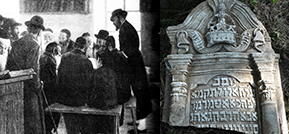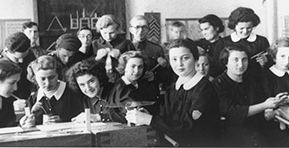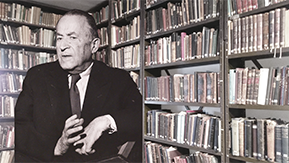Until his death in 1833, the Moreh Tzedek in Solotvin was Rabbi Tzvi Hirsh son of Yosef from Kalush (his tombstone).
Until his death in 1848 the Rabbi of Solotvin was R. Pinhas son of Yeshayah (his tombstone).
In the 1850s, Rabbi David Berl son of Yaakov Brenner served as a dayan in Solotvin. In 1873 the rabbi of Solotwin was Rabbi Haim Ratzer (Wunder, 4:1024).
Until 1875 a moreh tsedek was Rabbi Israel son of Barukh (his tombstone).
In the late nineteenth century the rabbi for several years was Rabbi Elimelekh son of Efraim Mordechai Porila (d. after 1948) (Wunder, 4:18).
Rabbi Tzvi Arie son of Israel Yaakov served as the rabbi and the head of the rabbinical court for 32 years, from 1852 until his death in 1884. He was a hasid and his father was a hasid too (his tombstone).
Rabbi Nahum Uri son of Rabbi David Yitzhak Gellis (b. 1852) was the rabbi of Solotvin from 1884 until his death (Ohalei Shem, 522; Pinkas Kehilot, 350; Edward Gelles, "An Ancient Lineage: European Roots of a Jewish Family", Vallentine Mitchell, London, 2006). He was active in the Orthodox politics as well as in the Religious Zionist Mizrahi movement.
Rabbi Yoel Babad was elected in 1936 as the rabbi of the town and he held the position until the Holocaust (Pinkas Kehilot, 350). The elections of the last rabbi led to a conflict between the dayan and moreh tzedek Rabbi N. Tanensaft, who wanted to become the rabbi of Solotvin, and the head of the community Meir Haller. The official institutions were forced to get involved in the conflict (Pinkas Kehilot, 350).






